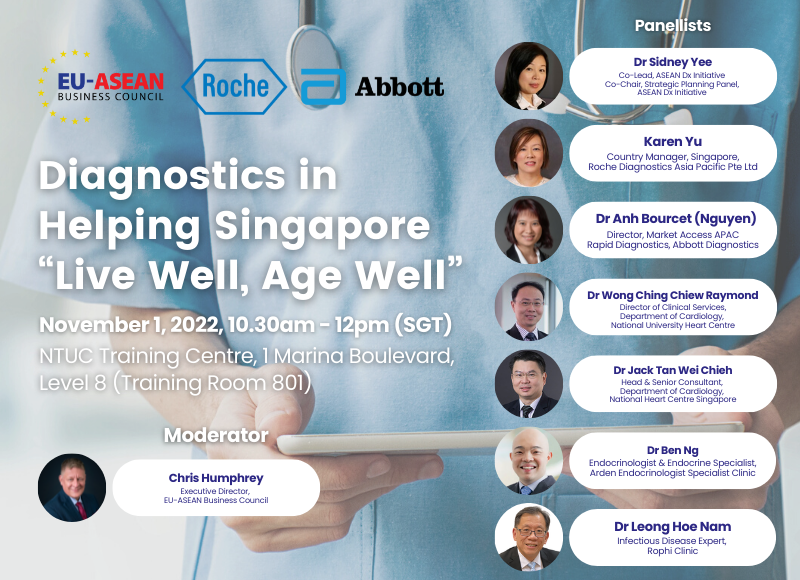With the ageing population estimated to rise to 25% by 2030, Singapore is looking to ensure that its citizens not only grow old, but age well and continue contributing positively to the society. In March 2022, the Ministry of Health revealed that there would be a stronger focus on preventive care as part of the “Healthier SG” strategy – emphasising on healthcare outcomes and patient-centric care over hospital-centric care – to reduce the burden on patients and healthcare systems, making healthcare expenditure more sustainable in the long run.
Although the life expectancy of Singaporeans is reported to be amongst the highest in the world, the number of people vulnerable to cardiovascular diseases (CVD) and respiratory tract infections remain high. Heart failure (HF) in Type 2 Diabetes (T2D), for example, impose substantial and growing burden on patients, society, and healthcare systems in Singapore, as they are often being detected and managed late. This results in increasing clinical and economic burden which could have been avoided or delayed through early detection of diseases. This, along with cancers and lower respiratory infections – diseases that can be prevented through early screening – account for approximately 70% of Years of Life Lost (YLL) in Singapore.
The role of diagnostics should therefore be incorporated into the “Healthier SG” strategy as it is a critical first step for the detection of diseases. For all individuals, young and old, diagnostics adds value as a “preventive” care mechanism aligned with Singapore’s goal to help citizens Live Well, Age Well.
The panel will discuss the following:
(1) How has the diagnostics landscape evolved over the years in Singapore. Has COVID-19 accelerated the adoption of screening and testing; or has it discouraged individuals from visiting hospitals and therefore reduced the likelihood of screening?
(1) How has the diagnostics landscape evolved over the years in Singapore. Has COVID-19 accelerated the adoption of screening and testing; or has it discouraged individuals from visiting hospitals and therefore reduced the likelihood of screening?
(2) Identifying T2D patients in A&E / ER at high risk of HF is challenging as conventional CV risk assessment methods do not capture true underlying patients’ HF risk, leading to missed cases, late and/or false referrals. How can Singapore take the lead in ASEAN for a paradigm shift in this landscape?
(3) How can enhancing diagnostics capability better prepare Singapore for its ageing population? What forms of diagnosis is available for Respiratory Tract Infections? How has it evolved over the years?
(4) How can Singapore become the pioneer to implement changes in diagnostics and screening for illnesses with high disease burden in Singapore like Heart Failure and respiratory tract infections?
(5) What role does diagnostics and early screening play in the “Healthier SG” initiative? How can private stakeholders work with MOH and government agencies to encourage the adoption of screening?

